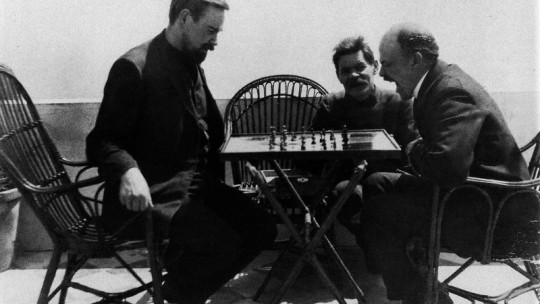
Many people would very easily feel identified as lazy, but intelligence is somewhat more difficult to measure and, although each person may have had an idea about their intellectual level, it is difficult to have references about this without resorting to intelligence tests. CI.
However, a recent study has found a link between these two dimensions of our mind. Specific, It has been observed that the most intelligent people are also the most likely to laze around during workdays
So, although excessive lazing could lead to isolation and therefore a diminished ability to think quickly, staying still and apparently doing nothing much can be an indication that we like to dedicate time and effort to exploiting our intelligence. .
Intelligent people are less active
This research, conducted by Todd McElroy from Florida Gulf Coast University and published in the Journal of Health Psychology, points out that people who show a greater need to perform cognitively stimulating and motivating tasks spend less time than others on tasks that require physical activity.
The need to engage in cognitively stimulating tasks, which is related to the level of intelligence, gives an idea of the way in which we tend to stay mentally active by participating in novel, challenging tasks that move away from monotony and repetitiveness.
Why is this happening? The key is in the cognitive challenge
This discovery is related to the idea that challenges and hobbies that occur only in our brain and are not based on carrying out physical activities (understood as tasks for which it is necessary to use several muscle groups, because thinking is also, After all, a physical process) are such a stimulating pastime and task that people accustomed to them do not need to move much.
So, This research serves to reinforce the idea that more intelligent people are not as prone to boredom. like the others, since they tend to take advantage of the moments in which they do not perform physical exertion to think, reflect, perform mental exercises… etc. On the other hand, people who do not stand out particularly for their intelligence would have more reasons to seek entertainment in direct interaction with their environment.
How was the research carried out?
These researchers from Florida Gulf Coast University relied on the use of tests to obtain information on a series of volunteers. Among the questions included in the tests were several designed to explore each person’s tendency toward undertaking cognitively demanding activities.
For example, these people had to say whether they more or less agreed with statements such as “I really enjoy finding new solutions to problems.”
From this data, the researchers selected 30 of the people most likely to exercise their cognitive abilities and another 30 who had the opposite characteristic, and they placed a device on their wrists. This bracelet was used to track their movements and emit data about their activity levels, and This information was collected over several days
The results
People less likely to tackle cognitively demanding tasks moved more and they showed significantly higher levels of physical activation than the others, but, curiously, this difference only appeared from Monday to Friday. During the weekends, this difference tended to disappear.
This last fact has not yet been explained, so if we want to clarify this point, it will be necessary to carry out more research on this topic.








